9 Healthiest Wild Game Meats Boost Your Health
Wild game meats like deer, elk, bison, rabbit, grass-fed beef, wild fish, wild turkey, wild boar, and kangaroo offer lean protein, essential nutrients, and health benefits, making them ideal choices for a nutritious diet.
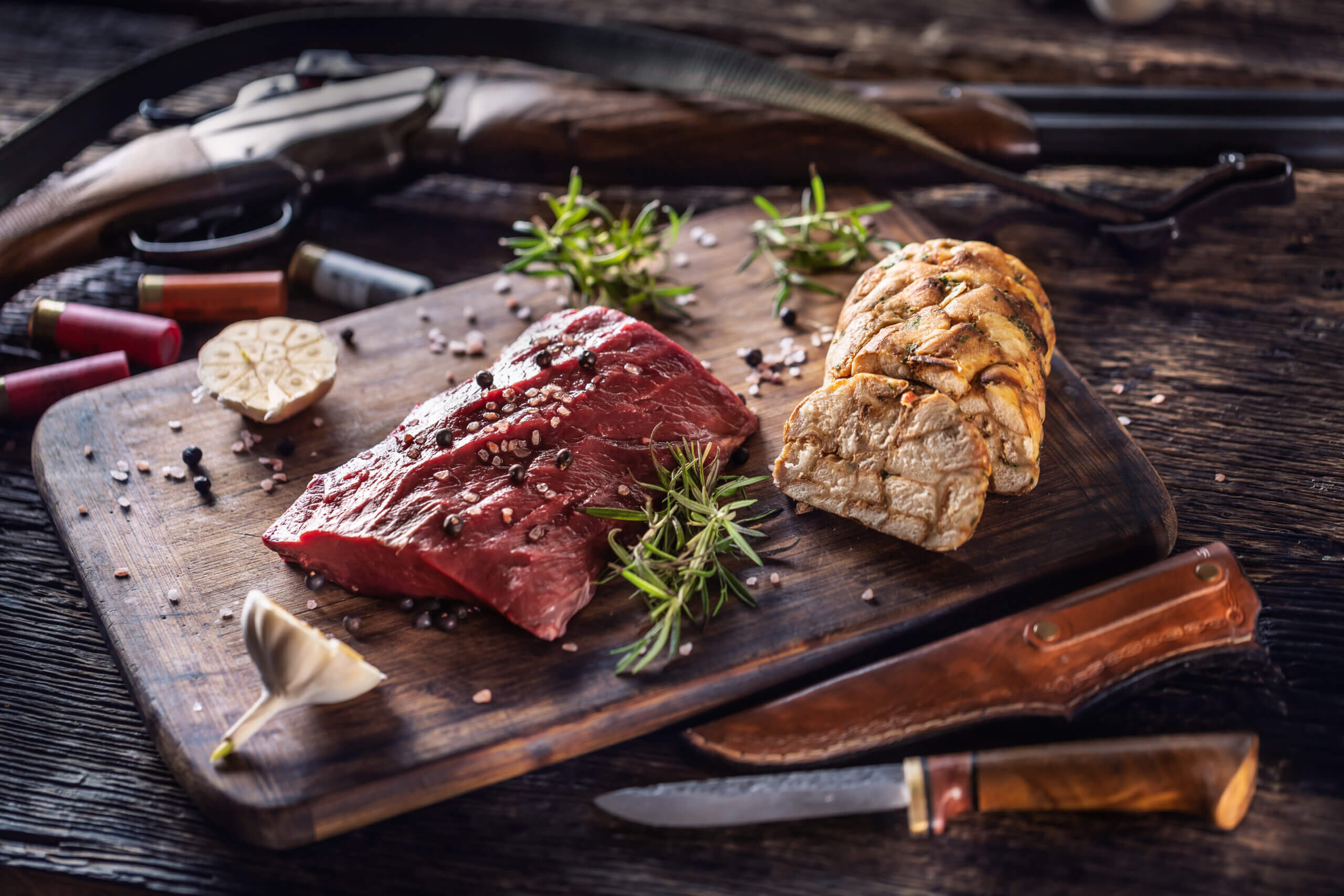
Exploring natural protein sources? Discover the health benefits of wild game meats, renowned for their leanness, nutrients, and superiority over traditional farmed options. They provide less fat, increased omega-3s, and are packed with protein, iron, and zinc, supporting muscle growth, curbing hunger, and promoting overall health. Learn about the top 9 healthiest wild game meats and find out which is the healthiest wild animal (focused mainly on animals you can hunt) to eat. Curious?
Disclosure: As an Amazon Associate, this site earns from qualifying purchases. Thank you!
1. Deer Meat
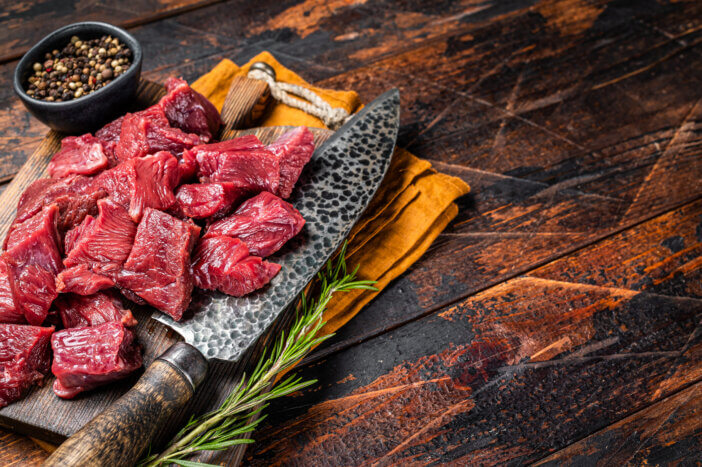
Commonly known as venison, deer meat is a staple in many households, especially those that value hunting and sustainability. Venison stands out for its high protein content and low fat. A 3-ounce serving of venison provides about 24 grams of protein, making it an excellent choice for muscle growth and repair. It also contains iron and zinc, crucial minerals for overall health.
Venison is nutritious due to its low fat, which comes from deer’s active lifestyle and diverse green diet. This lean meat is calorie-conscious and has a favorable omega-3 to omega-6 fatty acid ratio, reducing inflammation and supporting heart health.
2. Elk Meat
Elk meat, similar to venison, offers several health benefits. It’s packed with protein, low in fat, and full of essential nutrients. Elk meat is leaner than beef and chicken, and it’s lower in calories, making it a fantastic choice for anyone on a calorie-controlled diet.
Fresh elk meat offers a unique flavor that’s both sweet and slightly gamey. Like other wild game meats, elk is rich in iron and zinc, two minerals that play critical roles in maintaining good health. Iron helps prevent anemia and ensures proper growth, while zinc aids digestion and boosts the immune system. So next time you’re at the butcher or your local farmers market, why not pick up some elk meat and give it a try?
3. Bison
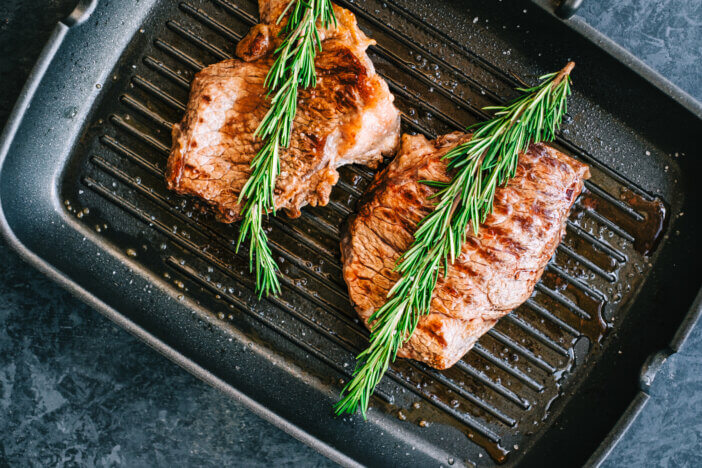
When it comes to nutritional value, bison is a powerhouse. Bison meat is extremely lean and contains less fat and fewer calories than beef, yet it delivers a hefty dose of protein. A 3-ounce serving of bison, for instance, has 24 grams of protein. This makes it an excellent choice for those looking to build muscle or simply get more protein in their diet.
One key benefit of bison over other meats is its rich supply of iron and zinc. These minerals help prevent deficiencies that can lead to anemia and weakened immune function. Additionally, bison is an excellent source of omega-3 fatty acids, which are known for their heart health benefits. With its robust flavor and host of health benefits, bison certainly deserves a spot on your dinner table.
4. Wild Fish

Wild fish is another excellent addition to a healthy diet. Whether it’s salmon, trout, or any other variety, wild fish is a fantastic source of lean protein and essential nutrients. Wild fish is particularly lauded for its high content of omega-3 fatty acids, which are beneficial for heart health.
Wild fish also contain important minerals like iodine and selenium and vitamins like vitamin D and B2 (riboflavin). Plus, it’s one of the few food sources of vitamin D, often referred to as the “sunshine vitamin,” which plays a crucial role in bone health and immune system function. Opting for wild fish over farm-raised variants means you’re getting a protein source that’s had a natural diet and environment, potentially leading to higher nutrient content.
5. Rabbit Meat
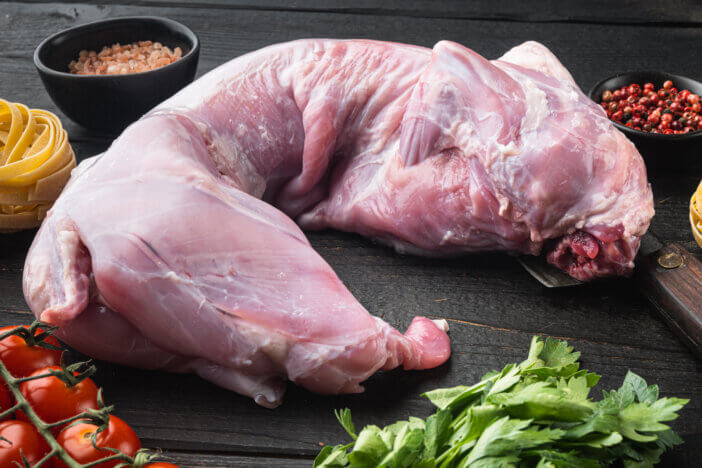
Rabbit meat is a high-protein, low-fat option that is often overlooked. It’s incredibly lean, with less fat and fewer calories than chicken, pork, and beef. This makes it a great option for those looking to reduce their calorie intake without sacrificing protein.
Furthermore, rabbit meat is rich in several essential nutrients, including vitamin B12, which aids in nerve function and the production of DNA. It’s also high in selenium, a mineral that supports the immune system and boosts fertility in both men and women. With its mild flavor and numerous health benefits, rabbit meat can be a versatile and nutritious addition to your diet.
6. Grass-fed Beef
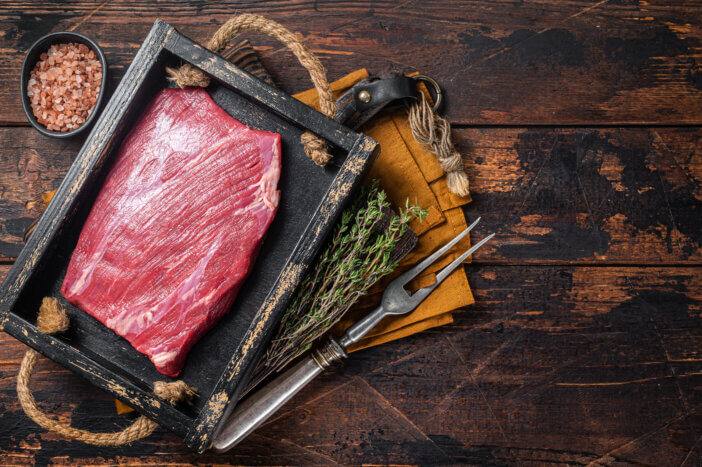
While not technically “wild game,” grass-fed beef shares many characteristics with wild meats. It’s often leaner than grain-fed beef, has fewer calories, and contains more heart-healthy omega-3 fatty acids. These benefits can be attributed to the cow’s natural diet of grass rather than grains.
Moreover, grass-fed beef is a fantastic source of protein, helping to support muscle growth and repair. It’s also packed with essential vitamins and minerals, including iron, zinc, and vitamin B12. Including grass-fed beef in your diet can offer the same benefits as consuming wild game, especially when it comes to lean protein and nutrient content.
7. Wild Turkey
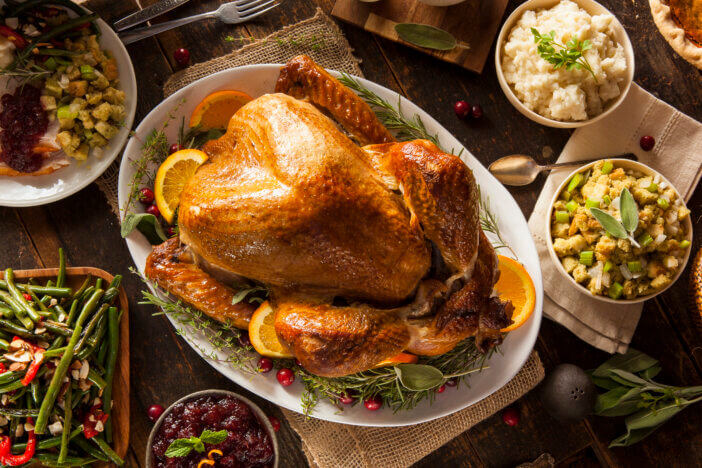
Wild turkey is another excellent option for lean, flavorful meat. It’s a fantastic source of lean protein, offering roughly 25 grams in a 3-ounce serving. Plus, it’s lower in fat and calories compared to domestic turkey, making it a healthier option for those watching their weight.
Beyond its nutritional value, wild turkey is also rich in vitamins and minerals. It contains important B vitamins like niacin, which plays a role in energy metabolism, and vitamin B6, which supports brain function. Additionally, wild turkey provides essential minerals such as iron, zinc, and selenium. With its savory flavor and nutritional profile, wild turkey can be a delicious and healthy addition to your meals.
8. Wild Boar
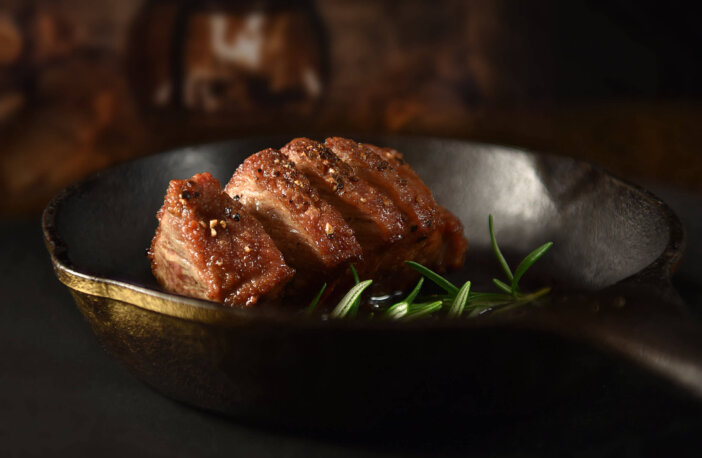
Wild boar meat is gaining popularity among food enthusiasts for its unique taste and impressive nutritional value. Similar to other wild game meats, wild boar is lean and lower in fat compared to pork. It’s also high in protein, making it a great choice for muscle growth and repair.
Wild boar is a good source of essential nutrients like iron and zinc. Iron is crucial for transporting oxygen throughout the body and preventing anemia, while zinc supports immune function and aids in wound healing. Additionally, wild boar is rich in B vitamins, which are important for energy production and brain health. So if you’re looking to add some variety to your diet, consider giving wild boar a try.
9. Kangaroo Meat
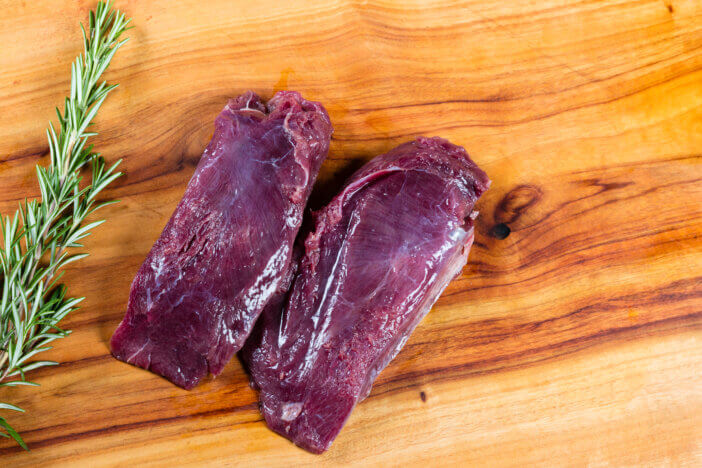
Kangaroo meat may not be as widely available as other game meats, but it’s certainly worth considering if you have the opportunity. Kangaroo meat is incredibly lean, with less than 2% fat and fewer calories than beef or lamb. It’s also rich in high-quality protein, providing all the essential amino acids your body needs.
One unique aspect of kangaroo meat is its high concentration of conjugated linoleic acid (CLA), a fatty acid that has been linked to various health benefits, including reduced body fat and improved metabolic health. Kangaroo meat is also a good source of iron and zinc, essential minerals for overall well-being. So if you’re feeling adventurous and want to try something different, kangaroo meat might be worth seeking out.






